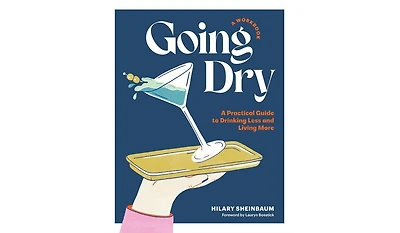Home
Going to Patchogue
Barnes and Noble
Loading Inventory...
Going to Patchogue in Bloomington, MN
Current price: $19.99


Going to Patchogue in Bloomington, MN
Current price: $19.99
Loading Inventory...
Size: OS
Patchogue is a village on Long Island sixty miles from New York City. A man now married and living on the Lower East Side of Manhattan decides to return to the village where he grew up. He carries the dead heaped on his shoulders and the memory of the first love that sent him forth from the village, both fortunate and cursed by this memory. The trip to and from Patchogue assumes he contours of the oldest journey of all: the search for paradise, impelled by the embarrassment of reality. Yes, it is always greener on the other side of the fence, but then that grass has been well fertilized by heaps of decay and rottenness.
Written in a prose that recalls Celine's, Going to Patchogue is a moral book that will be misjudged as racist and bitter only by those who thought Swift wanted modestly to put Irish babies on sale in the London meat markets. It is a book of flesh and guts, of blood, sperm, and saliva. But to go to Patchogue is also to go to Paris, Venice, Istanbul, to Sofia. Because the traveler doesn't want to repeat the same journey back, he returns via Bulgaria, Istanbul, and the Villa Paradiso in Padua, the ironically named journey's end of this travel book for those who never travel.
"Whereas most autobiographical fiction bulldozes the past, obliterating the memorial ground with power shovels and pickaxes of exploitative self-serving, Going to Patchogue employs the less sensational and more laborious methods of archeologyteaspoons and siftersto lay truth bare: things as they were (are still). Like allegory, it emphasizes rhetorical trope rather than plot, and attribute rather than ambiguity. It is what all persuasive writing ought to be: formally subversive. It is the cunning, conclusive deconstructionist screed of an alienated, suicidal American's nightmare. In its way it burns the flagburns all flags, really, along with all diplomas and other forms of 'advertorial' mendacity. I recommend it indeed." (James McCourt)
"McGonigle clearly knows his territory, and he writes from the heart." (New York Times Book Review 4-12-92)
"McGonigle is simply a very fine writer. Dozens of sentences and images ring like bellstrokes." (Chicago Tribune Books 2-9-92)
"While many may find this literate and haunting novel difficult, others will treasure it as an exploration of those recesses of the mind where we can be most honestly ourselves. For McGonigle that territory is called Patchogue." (Publishers Weekly 10-25-91)
"McGonigle has inherited Joyce's gift of being able to create with the simplest of words the most powerful universe and the most resonant depths of feelings. Going to Patchogue is an original and beautifully written novel by an emerging master of the form." (American Book Review February-March 93)
Written in a prose that recalls Celine's, Going to Patchogue is a moral book that will be misjudged as racist and bitter only by those who thought Swift wanted modestly to put Irish babies on sale in the London meat markets. It is a book of flesh and guts, of blood, sperm, and saliva. But to go to Patchogue is also to go to Paris, Venice, Istanbul, to Sofia. Because the traveler doesn't want to repeat the same journey back, he returns via Bulgaria, Istanbul, and the Villa Paradiso in Padua, the ironically named journey's end of this travel book for those who never travel.
"Whereas most autobiographical fiction bulldozes the past, obliterating the memorial ground with power shovels and pickaxes of exploitative self-serving, Going to Patchogue employs the less sensational and more laborious methods of archeologyteaspoons and siftersto lay truth bare: things as they were (are still). Like allegory, it emphasizes rhetorical trope rather than plot, and attribute rather than ambiguity. It is what all persuasive writing ought to be: formally subversive. It is the cunning, conclusive deconstructionist screed of an alienated, suicidal American's nightmare. In its way it burns the flagburns all flags, really, along with all diplomas and other forms of 'advertorial' mendacity. I recommend it indeed." (James McCourt)
"McGonigle clearly knows his territory, and he writes from the heart." (New York Times Book Review 4-12-92)
"McGonigle is simply a very fine writer. Dozens of sentences and images ring like bellstrokes." (Chicago Tribune Books 2-9-92)
"While many may find this literate and haunting novel difficult, others will treasure it as an exploration of those recesses of the mind where we can be most honestly ourselves. For McGonigle that territory is called Patchogue." (Publishers Weekly 10-25-91)
"McGonigle has inherited Joyce's gift of being able to create with the simplest of words the most powerful universe and the most resonant depths of feelings. Going to Patchogue is an original and beautifully written novel by an emerging master of the form." (American Book Review February-March 93)
Patchogue is a village on Long Island sixty miles from New York City. A man now married and living on the Lower East Side of Manhattan decides to return to the village where he grew up. He carries the dead heaped on his shoulders and the memory of the first love that sent him forth from the village, both fortunate and cursed by this memory. The trip to and from Patchogue assumes he contours of the oldest journey of all: the search for paradise, impelled by the embarrassment of reality. Yes, it is always greener on the other side of the fence, but then that grass has been well fertilized by heaps of decay and rottenness.
Written in a prose that recalls Celine's, Going to Patchogue is a moral book that will be misjudged as racist and bitter only by those who thought Swift wanted modestly to put Irish babies on sale in the London meat markets. It is a book of flesh and guts, of blood, sperm, and saliva. But to go to Patchogue is also to go to Paris, Venice, Istanbul, to Sofia. Because the traveler doesn't want to repeat the same journey back, he returns via Bulgaria, Istanbul, and the Villa Paradiso in Padua, the ironically named journey's end of this travel book for those who never travel.
"Whereas most autobiographical fiction bulldozes the past, obliterating the memorial ground with power shovels and pickaxes of exploitative self-serving, Going to Patchogue employs the less sensational and more laborious methods of archeologyteaspoons and siftersto lay truth bare: things as they were (are still). Like allegory, it emphasizes rhetorical trope rather than plot, and attribute rather than ambiguity. It is what all persuasive writing ought to be: formally subversive. It is the cunning, conclusive deconstructionist screed of an alienated, suicidal American's nightmare. In its way it burns the flagburns all flags, really, along with all diplomas and other forms of 'advertorial' mendacity. I recommend it indeed." (James McCourt)
"McGonigle clearly knows his territory, and he writes from the heart." (New York Times Book Review 4-12-92)
"McGonigle is simply a very fine writer. Dozens of sentences and images ring like bellstrokes." (Chicago Tribune Books 2-9-92)
"While many may find this literate and haunting novel difficult, others will treasure it as an exploration of those recesses of the mind where we can be most honestly ourselves. For McGonigle that territory is called Patchogue." (Publishers Weekly 10-25-91)
"McGonigle has inherited Joyce's gift of being able to create with the simplest of words the most powerful universe and the most resonant depths of feelings. Going to Patchogue is an original and beautifully written novel by an emerging master of the form." (American Book Review February-March 93)
Written in a prose that recalls Celine's, Going to Patchogue is a moral book that will be misjudged as racist and bitter only by those who thought Swift wanted modestly to put Irish babies on sale in the London meat markets. It is a book of flesh and guts, of blood, sperm, and saliva. But to go to Patchogue is also to go to Paris, Venice, Istanbul, to Sofia. Because the traveler doesn't want to repeat the same journey back, he returns via Bulgaria, Istanbul, and the Villa Paradiso in Padua, the ironically named journey's end of this travel book for those who never travel.
"Whereas most autobiographical fiction bulldozes the past, obliterating the memorial ground with power shovels and pickaxes of exploitative self-serving, Going to Patchogue employs the less sensational and more laborious methods of archeologyteaspoons and siftersto lay truth bare: things as they were (are still). Like allegory, it emphasizes rhetorical trope rather than plot, and attribute rather than ambiguity. It is what all persuasive writing ought to be: formally subversive. It is the cunning, conclusive deconstructionist screed of an alienated, suicidal American's nightmare. In its way it burns the flagburns all flags, really, along with all diplomas and other forms of 'advertorial' mendacity. I recommend it indeed." (James McCourt)
"McGonigle clearly knows his territory, and he writes from the heart." (New York Times Book Review 4-12-92)
"McGonigle is simply a very fine writer. Dozens of sentences and images ring like bellstrokes." (Chicago Tribune Books 2-9-92)
"While many may find this literate and haunting novel difficult, others will treasure it as an exploration of those recesses of the mind where we can be most honestly ourselves. For McGonigle that territory is called Patchogue." (Publishers Weekly 10-25-91)
"McGonigle has inherited Joyce's gift of being able to create with the simplest of words the most powerful universe and the most resonant depths of feelings. Going to Patchogue is an original and beautifully written novel by an emerging master of the form." (American Book Review February-March 93)
![Going Back Home [Dreamsicle Color Vinyl] [Barnes & Noble Exclusive]](https://prodimage.images-bn.com/pimages/0848064018940_p0_v1_s600x595.jpg)
![Wellspring [Barnes & Noble Exclusive]](https://prodimage.images-bn.com/pimages/0884501047746_p0_v1_s600x595.jpg)
![Fe3O4: FORWARD [Go Ver.] [Barnes & Noble Exclusive]](https://prodimage.images-bn.com/pimages/0198704286636_p0_v2_s600x595.jpg)



![Shadowland [Barnes & Noble Exclusive]](https://prodimage.images-bn.com/pimages/0093624920434_p0_v2_s600x595.jpg)
![C'mon [Barnes & Noble Exclusive]](https://prodimage.images-bn.com/pimages/0751937362326_p0_v1_s600x595.jpg)

![Zaz [Barnes & Noble Exclusive]](https://prodimage.images-bn.com/pimages/0886977447327_p0_v1_s600x595.jpg)
![Wonderland [Barnes & Noble Exclusive]](https://prodimage.images-bn.com/pimages/0602557155105_p0_v4_s600x595.jpg)






